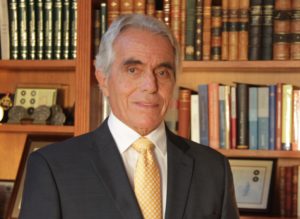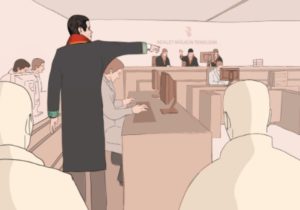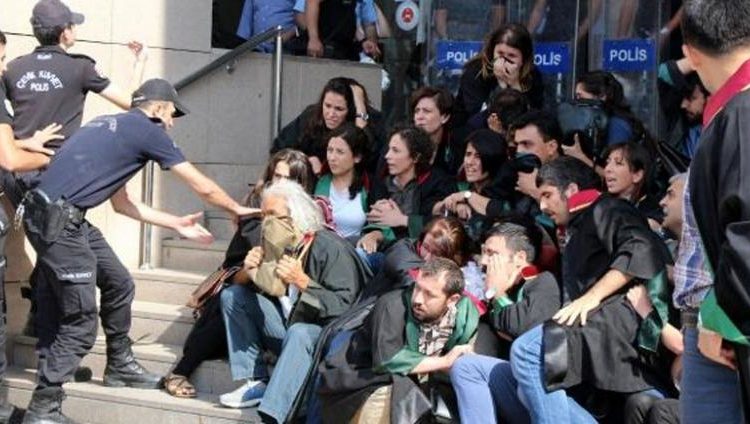Abdullah Bozkurt/Stockholm
Turkey was put on notice by the United Nations for a systematic and deliberate campaign to crack down on lawyers and judges with blatant abuse of counterterrorism laws in order to punish them for representing critics, opponents and dissidents.
A recent report submitted to the UN Human Rights Council by Diego García-Sayán, special rapporteur on the independence of judges and lawyers, highlighted the practice of Turkish prosecutors who routinely launch cases against lawyers on terrorism charges for activities undertaken in the discharge of their professional duties.
Prosecutors who follow the political guidelines of the government of President Recep Tayyip Erdoğan also associate lawyers with the alleged crimes of their clients, according to the report.
The UN reported that between 2016 and 2022 more than 1,600 lawyers were prosecuted and 615 were placed in pretrial detention. Four hundred seventy-four lawyers have been sentenced to a total of 2,966 years in prison on the grounds of membership in a “terrorist organization”.

It noted that “Pretrial detention, arrest and searches of lawyers’ homes are considered to be human rights violations when they are based on mere supposition and there is no evidence to justify such measures.”
García-Sayán’s report confirmed what many human rights organizations have been saying and documenting for years on the Erdoğan government’s relentless campaign to imprison, prosecute and harass lawyers.
In April 2022 the American Bar Association, the largest voluntary association of lawyers in the world, said in a statement that Turkish lawyers continue to be arrested, charged, tried and imprisoned for doing their jobs.
UN report on the protection of lawyers against undue interference in the free and independent exercise of the legal profession:
The Erdoğan government targets lawyers in particular who are affiliated with the Gülen movement, a group that is critical of the government on a range of issues, or those who represent people associated with the movement. In some cases lawyers become targets themselves because of those cases.
Lawyers who are involved with the Kurdish political movement are also targeted by the Erdoğan government.
The imprisonment and prosecution of lawyers has dealt a huge blow to the independence of the legal profession and prevented Turkish lawyers from freely conducting their work in Turkey.
What is more, Turkish authorities routinely violate lawyers’ right to privacy by breaching attorney-client confidentiality and bring new charges against both lawyers and their clients based on confidential conversations that took place as part of defense preparations. The practice undermines the right to a fair trial.
Many lawyers hesitate to take the cases of government critics and opponents over fears that they could be targeted and imprisoned on similar charges. In some cases, lawyers demand huge fees to accept such cases because of the risk associated with the clients.
The 2021 US State Department human rights report touched on the issue and noted that some lawyers “were hesitant to take cases … for fear of government reprisal, including prosecution. Many lawyers defending persons accused of terrorism have faced criminal charges themselves,” it said.

The Council of Europe, the largest intergovernmental organization that champions the rule of law and fundamental human rights in Europe, repeatedly asked Turkey, a member state, to cease such practice but to no avail.
In September 2020 rapporteurs from the Parliamentary Assembly of the Council of Europe (PACE) issued a statement telling Turkey that lawyers should not be criminalized for engaging in their profession or convicted on dubious charges.
“The Turkish justice system must respect the European Convention on Human Rights and rule of law standards. Lawyers play a key role in the implementation of these standards, and the effective administration of justice. They must therefore be able to exercise their profession independently and safely,” said rapporteurs Alexandra Louis, Thomas Hammarberg and John Howell.
The UN also criticized Turkey for adopting a new law in 2020 that modified the electoral system of bar associations and said the law further restricted the independence of bar associations and the legal profession.
In his report García-Sayán stated that he, joined by other experts on the Human Rights Council, had transmitted a communication to the government of Turkey expressing concern about the detention of 48 lawyers, seven trainee lawyers, four dismissed judges and one law graduate in September 2020 in Ankara.
The crackdown on lawyers followed a mass purge of 4,156 judges and prosecutors from public service by the Erdoğan government in 2016. The vacancies were filled with partisans and loyalists who were often recruited from the ranks of the ruling Justice and Development Party (AKP).
UN letter seeking information about the detention of lawyers and expressing concern:












